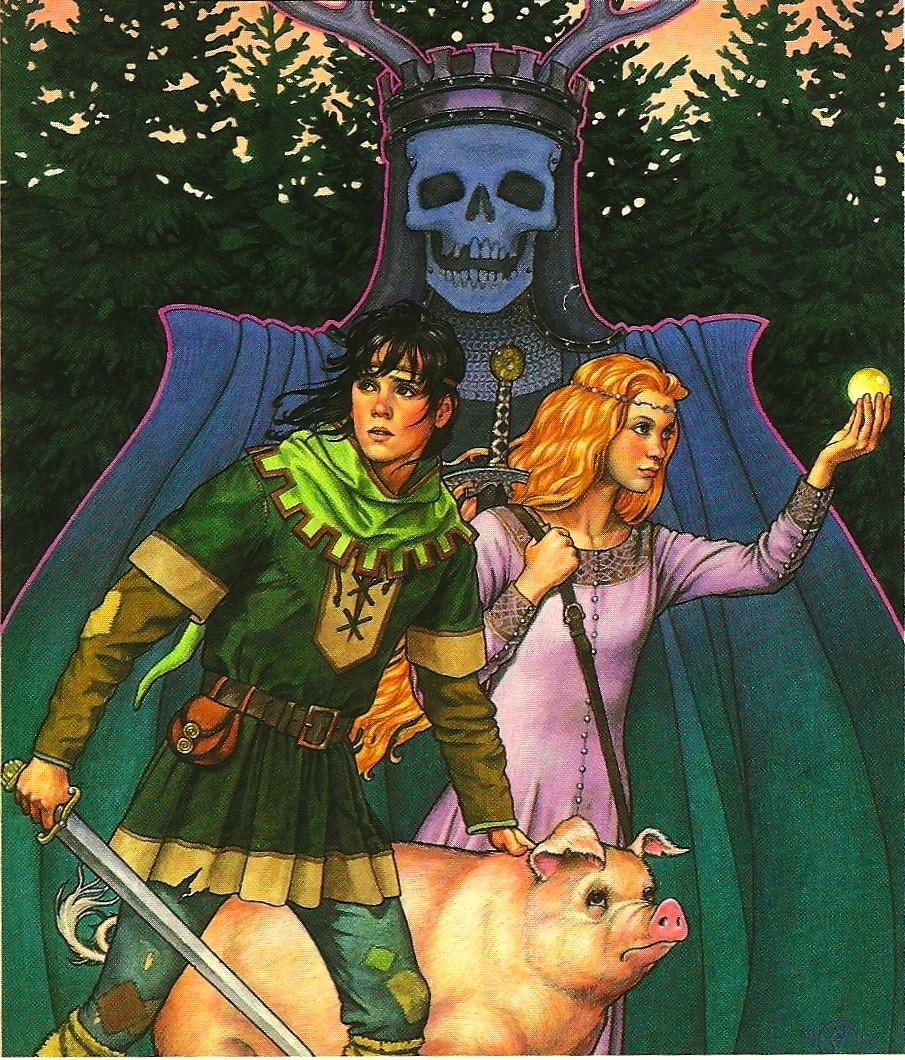It was really hard for the me to sell any OSR or retroclone-style game to my current table. They were coming from heavier games (Pathfinder, Warhammer 3rd and 2d20) or from FATE. All their previous campaigns were strongly character-driven, with complex PC backgrounds and a certain degree of plot immunity against sudden death (usually through the use of Fate/Destiny/Hero points). Even when I tried Midnight with them, the table insisted on a character-driven game, which made me hack the 3.5 rules.
I guess that DCC RPG worked for them because of the Funnel*. It was fun and easy to run. I’m sure that at the time my table only accepted DCC because it was a good change of pace. Lots of characters died and lots of (otherwise) unoptimized character survived. That’s when the DCC magic kicked in. After three to six sessions playing with those survivors, the players started to get used to them, to plot goals and to imagine all kind of perks and… finally!... backgrounds.
*OK, I also used a little bit of Destiny Points, after the Funnel, but that is for another post.
 |
| I still have nightmares with 4-8 pages PC backgrounds... |
Character Backgrounds aren’t something you start with, but something you earn...
I can’t remember if I read it at Matthew Finch’s excellent Quick Primer for Old School Gaming, but one interesting aspect of OSR-style campaigns is that most PCs start without detailed background. Actually, most start without any background, having only a perk or two (boisterous, grim, lordly etc.) or basic concept (drunken dwarf, elf minstrel etc.). That’s because in older campaigns a PC’s background was a result of surviving long enough the campaign… each PC was a blank sheet until returning from the dungeon and spreading his tales of adventure. A character’s background was - basically - his campaign log. That is an awesome concept, very different from modern games, but hardly something that I could sell to my table.
So, at my DCC RPG campaign, I tried something slightly different. After all the gore and fun of the Funnel passed, when the party was reaching 2nd level I started to poke my players with questions: why you decided to go adventuring? Are you mad? Do you have a family? Enemies? Any tragic past?
For example: one of the PCs that survived our first Funnel was a lowly gongfarmer. During Sailors on the Starless Sea, his player made a really good argument at the table, telling us that his PC wasn’t just a gongfarmer - he was only pretending to be one. That PC was actually a chaotic cultists running from the Law Churches. He journeyed to the dungeons of the Starless Sea to find a Chaotic relic, restore his powers and get revenge! (all this just to roll a d20 in a Int check instead of a d10… those players...). In the end, it was so cool that the entire table (and me, the judge) bought it (I also believe a force him to roll a Will save or suffer Corruption).
 |
| Go to a Funnel! Become a Badass! |
Later, another PC that survived both Sailors on the Starless Sea and a homemade adventure was facing the deeps of The One Who Watches From Below. He was a squire or maybe even (another!) gongfarmer. I can’t remember. He became a mighty 3rd-level Warrior and his player proposed that his PC was actually the last scion of a fallen noble house, blamed unjustly with acts of witchcraft and black magic. We loved it and I already created a connection between that fallen noble house, a cult of Bobugbubilz (for The Croaking Fane) and the module Bride of the Black Manse.
The idea here is that a PC’s background is something that is built during the campaign as it progress, with a few bits of information provided by the player as a reward for surviving. Unlike “classic” Old School, a PC background isn’t just his adventures since 1st level, but also additional hooks crafted by the player as allowed by the game. The best of this “edited” background is that it allows a PC to play, for example, the (otherwise nigh unplayable) cliché of the Chosen One - the twist here is that it will make perfect sense only at higher levels. After all, if that PC survives to 7th or 8th level and only then reveals that he’s the Chosen One, that may sound true (after all, he survived this far). That way the Gamemaster avoids the classic problem of a 1st-level “Chosen One” that dies when facing his first orc.
 |
| No Chosen Ones at 1st level. |
An organic background, developed during the campaign, also allows the PC and the party to better declare what types of adventures they want, thus reinforcing agency. If, after surviving a battle against orcs, one of the PCs declare that his parents were taken by an orc chieftain with red skin, then the Gamemaster just got a free hook to insert in future adventures a tribe of “red orcs” (if your players are really open minded with their intents, you can work with them, offering background “revelations” that better suit your material).
A good start here is allow each player “one true fact” about his PC after surviving an entire module or two (not just one game session!). The entire table and Judge must accept the “new” fact about the PC and the revelation should not be used to gain free access to magic items or power, but to provide hooks for greater adventures (that, in the end, may grant the PC access to magic and political power).

No comments:
Post a Comment